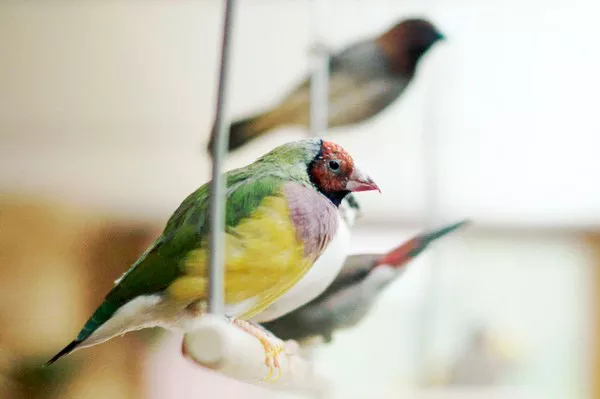Rabbits are delicate creatures, especially at a young age. Feeding a 3-week-old rabbit requires special care and attention to ensure its health and proper growth. At this stage, baby rabbits are transitioning from relying solely on their mother’s milk to beginning to nibble on solid foods. Knowing exactly what to feed a 3-week-old rabbit is crucial for their development and survival. This guide will provide you with detailed, easy-to-understand information on how to properly nourish a 3-week-old rabbit.
Understanding a 3-Week-Old Rabbit’s Development
At 3 weeks old, rabbits are in a critical period of development. They are still nursing from their mother but also beginning to explore and sample solid foods. Their digestive systems are delicate and not fully developed, making it essential to provide the right balance of milk, water, and solid foods.
During this stage, baby rabbits (also called kits) are becoming more active and curious. Their teeth are starting to grow, and their bodies need more nutrients to support their rapid growth. However, introducing the wrong types of food too early can lead to digestive problems, which can be life-threatening.
Importance of Mother’s Milk
If the mother rabbit is present and healthy, her milk is the best food source for 3-week-old kits. Rabbit milk is rich in nutrients, fats, and antibodies that help strengthen the kits’ immune systems.
How Often Do Baby Rabbits Nurse?
Mother rabbits usually nurse their babies once or twice a day, typically early in the morning and late at night. This is normal, as rabbit milk is highly concentrated and provides enough nourishment in small amounts.
If the mother rabbit is still nursing, let the kits continue feeding naturally. However, if the mother is absent or unable to nurse, you will need to provide a suitable milk replacement.
What to Use as a Milk Replacement
If you need to hand-feed the baby rabbit, you can use a kitten milk replacer (KMR) or goat’s milk. These are the closest substitutes to rabbit milk. You can find kitten milk replacers at pet stores or veterinary clinics.
How to Prepare Milk Replacement:
- Use warm (not hot) water to mix powdered kitten milk replacer according to the package instructions.
- Feed the milk to the baby rabbit using a small syringe or a dropper.
- Make sure the baby rabbit is in an upright position while feeding to prevent choking.
- Feed them 2-3 times a day with small amounts, approximately 5-7 ml per feeding.
Never use cow’s milk, as it is too difficult for rabbits to digest and can cause severe health problems.
Introduction to Solid Foods
By the time rabbits reach 3 weeks old, they naturally start nibbling on solid foods while still nursing. However, their digestive systems are still fragile, so it’s essential to introduce solid foods gradually.
Best First Solid Foods for a 3-Week-Old Rabbit:
- Alfalfa Hay: Alfalfa hay is high in calcium and protein, which helps with growth.
- Pellets: High-quality rabbit pellets made from alfalfa can be offered in small amounts.
- Water: Provide fresh, clean water in a shallow dish or bottle.
How to Introduce Solid Foods:
- Start by offering small amounts of alfalfa hay and pellets.
- Observe how the baby rabbit reacts to the food.
- Gradually increase the quantity as they grow more comfortable.
- Avoid giving sugary or processed treats at this stage.
Hydration
Hydration is vital for baby rabbits. At 3 weeks old, rabbits can begin drinking small amounts of water alongside their milk. Use a shallow dish or a small water bottle attached to their enclosure.
Make sure to change the water daily and keep the container clean to prevent bacterial contamination.
Foods to Avoid
Certain foods can be harmful or even fatal to young rabbits. Avoid the following foods for a 3-week-old rabbit:
- Cow’s milk
- Bread
- Sugary treats
- Nuts and seeds
- Lettuce (especially iceberg lettuce)
- Cabbage
- Potatoes
- Chocolate
These foods can cause digestive upset, bloating, or even poisoning.
Common Feeding Mistakes
Here are some common mistakes to avoid when feeding a 3-week-old rabbit:
- Overfeeding milk replacement: Too much milk can cause diarrhea.
- Introducing solid foods too quickly: This can overwhelm their digestive system.
- Giving inappropriate foods: Some foods are toxic or too hard to digest.
- Not providing fresh water: Hydration is essential for digestion and overall health.
How to Tell if Your Rabbit is Eating Enough
Signs that your rabbit is eating enough include:
- Active and alert behavior
- Consistent weight gain
- Regular bowel movements (small, round pellets)
- Shiny fur
If the baby rabbit seems lethargic, isn’t eating, or has diarrhea, seek veterinary help immediately.
Transitioning to a Solid Diet
By 4-5 weeks old, rabbits will gradually rely more on solid foods and less on milk. Continue providing alfalfa hay, pellets, and fresh water. Slowly introduce small amounts of fresh vegetables, such as parsley or cilantro, at around 6-8 weeks old.
Final Tips for Feeding a 3-Week-Old Rabbit
- Always provide fresh water.
- Introduce solid foods gradually.
- Use high-quality pellets and hay.
- Monitor the rabbit’s health closely.
- Keep their enclosure clean to avoid infections.
- Consult a veterinarian if you notice any signs of illness.
Conclusion
Feeding a 3-week-old rabbit requires patience, knowledge, and care. At this stage, the rabbit’s diet should consist mainly of mother’s milk or a suitable milk replacement, with small amounts of hay and pellets introduced gradually. Providing the right balance of nutrients and hydration will support the rabbit’s growth and help prevent health issues.
By following these guidelines, you can ensure your baby rabbit grows into a healthy, happy adult. If you’re ever unsure about your rabbit’s diet or health, don’t hesitate to seek advice from a veterinarian experienced with small animals.
Related Topics:






















